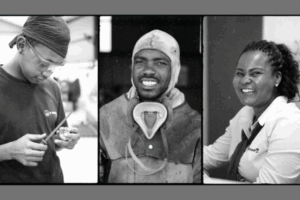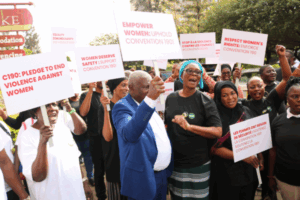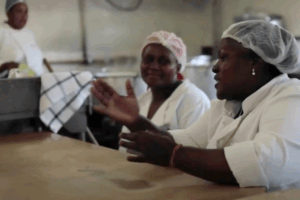Humanity is facing the worst crisis of our times, comparable to pandemics or wars a century ago. Humanity, which was so proud of its capacity to explore other planets, is now confronted with a virus which reveals its enormous fragility. This not only leaves us face to face with our greatest fears; it shows us, above all, that our arrogance does not put us in a privileged position in history. Therefore the time has come to review both the ways in which human beings have structured our development and the values that sustain it.
The pandemic has also made it clear that actions to deal with the health crisis will be ineffective unless we are prepared to respond to all the issues at stake in this worldwide crisis. We need comprehensive answers which will enable us to tackle the urgent health crisis by putting all the necessary mitigating measures into place, but above all, by adopting preventive measures which have proved successful internationally. These must be accompanied by the appropriate economic and social measures to prevent the health crisis from turning into a deep social and economic crisis, which might cast us back to the most dreadful conditions of precariousness and starvation worldwide.
Humanity is facing the risk that the way out of the pandemic will consolidate and deepen the inequality we experience in many countries of the world, and especially in the Americas, where economic models are based on precarious employment relations and withholding the added value of our work, as the wages of a large proportion of the working class are increasingly meagre while the wealthiest’s income increases.
At the same time, the health crisis highlights the urgent need for debating and strengthening the role of states everywhere. However, rather than limiting itself to the nation state, the debate will have to focus on integration amongst countries. At present, not only will strong, robust states provide better tools for necessary actions against the pandemic, as they draw from public-policy based centralised policies and clear orientations instead of the market; such a perspective also opens the chance to strengthen the role of multilateral and multinational organisations, and, especially tripartite agencies such as the International Labour Organisation.
But even within a highly complex context marked by a high degree of uncertainty, such as we are experiencing now, a number of convictions enable us to go beyond identifying threats to focus on the opportunities that might arise from the crisis.
One is related to the strategies to deal with the pandemic. Latin American countries were able to learn about the pandemic thanks to the strategies developed elsewhere, ever since Covid-19 crossed their borders. We found out that wherever measures against the spread of contagion were adopted without delay, indicators have been quite good and it has been possible to provide an efficient response to the pandemic and prevent health systems from collapsing.
One of the most worrying risks we identified is an eventual deepening of existing inequalities and abusive legislation against workers. Experience shows that a number of countries which emphasised social dialogue in order to work out comprehensive, effective solutions were able to dedicate more capacity to the task of overcoming the health crisis and tackling the social crisis, while making sure that economic recovery would not come at the price of perpetuating inequality.
Bold answers
Such experiences present major opportunities to ensure that the answers we develop in the wake of this crisis will not produce more of the same, but instead promote bold answers to an extreme challenge.
The international labour movement and the trade unions of the Americas are not staying on the sidelines of this worldwide debate. Our voice may not be the only one in the current context, but the most important threats are precisely to the world of labour. This is no surprise, because before the pandemic labour relations were already being reshaped: the substitution of human power by robots or machines, the challenges of technology in the world of work, and the fourth industrial revolution’s effect on jobs and occupations created permanent tensions which trade unions had to address. New technologies in the world of labour had become a threat to workers because, hidden behind the discourse of a new modernity, such technologies finally pave the way to threaten the rights acquired over centuries of struggle.
So, although the pandemic has called us to defend the most basic right, the right to life, it also highlights our role and the unquestionable need for human labour to enable countries to address challenges not only on the basis of algorithms, but with the help of our best and most advanced capabilities, in order to revalue occupations which have been traditionally dismissed as valueless but have proved essential, such as cleaners and domestic workers, who have been suppressed for decades because their function was associated with the traditional role women are supposed to play. Until recently, the role these women played was not recognised as a paid job with social security requirements.
Limits of work
The pandemic has undoubtedly made the value of labour in society more evident. However, this does not mean that we will face no new challenges. The traditional limits of labour relations and work as such remain subject to debate. The phenomenon of teleworking – and the gender bias it implies – focusses our attention on the defining elements of work and especially paid work, such as travel to a physical space which is different from home, compliance with predefined working hours, and uniforms, among others. All the elements which marked the boundary between home and work will have to be redefined.
Whereas the value of work is now at the heart of an essential debate, the forms in which this essential value becomes effective will be amongst the most important challenges we must address as organised labour.
At least one lesson we should have learnt from the pandemic is that, in times like these, it is impossible to act within corporate limits. One of the tasks we face today is that the role of the trade union movement goes well beyond the limits of a single company or sector. If it had not been for the active participation of the union movement in the wake of the health crisis, the measures to protect the economy might well have been put on the shoulders of working women and men, featuring the reduction of labour rights and legislation against our interests, leaving us at the mercy of a privatisation of the crisis.
Indeed, the experience of social dialogue in various countries shows that the trade union movement is able to rise to the occasion when it moves beyond everyday challenges to develop a far-reaching strategy focussing on essential issues such as the establishment of public policies and its role as an active participant in the definition of action plans and programmes to deal with the emergency. Under no circumstances would this limit its actions at a grassroots level to defend employment, oppose lay-offs, or act as a wall of contention against those who want to put the cost of the crisis on the shoulders of working people.
Regarding the dramatic evidence that the value of work and the state are essential, the moment has come to revalidate the role of a social and political union movement that reaches out beyond current circumstances and acts at the service of a country project in which the role of work and workers is redrafted completely, and the country project ceases to be subject to the paternalism of governments.
This is traditionally a task of the trade union movement, but in this situation, one of the most contingent debates is whether we can conceive of the trade union movement without recognising its role in the dispute for power and in shaping the narrative of the society we aim to achieve.
One preconception when replying to this question may have led some political sectors to deny the role of trade unions at this time, to compete with them or to make them invisible in order to control them, because they perceive them as a threat to the institutional narrative – the debate at the heart of the reflections of the current century. So they try to either capture or downplay the trade union movement by opposing it to the presence of new movements and deny the possibility that it can act as a counterpart in the debate about the fair distribution of wealth.
A call for reflection
This challenge is not just a call for action: it is a call for reflection, a call to look at ourselves and review our practices. It is a call to live up to and comply with our historical responsibility on the basis of continuous critical review of our work, and to do so starting from what brings us together, from our working-class identity, while promoting changes and transformation in favour of the vast majority in the world at a time in which the value of labour takes centre stage and the limits of work are redefined.
Bárbara Figueroa is president of Chile’s Central Union of Workers. She was awarded the 2020 Arthur Svensson International Prize for Trade Union Rights.
This article was first published by Global Labour University here.







